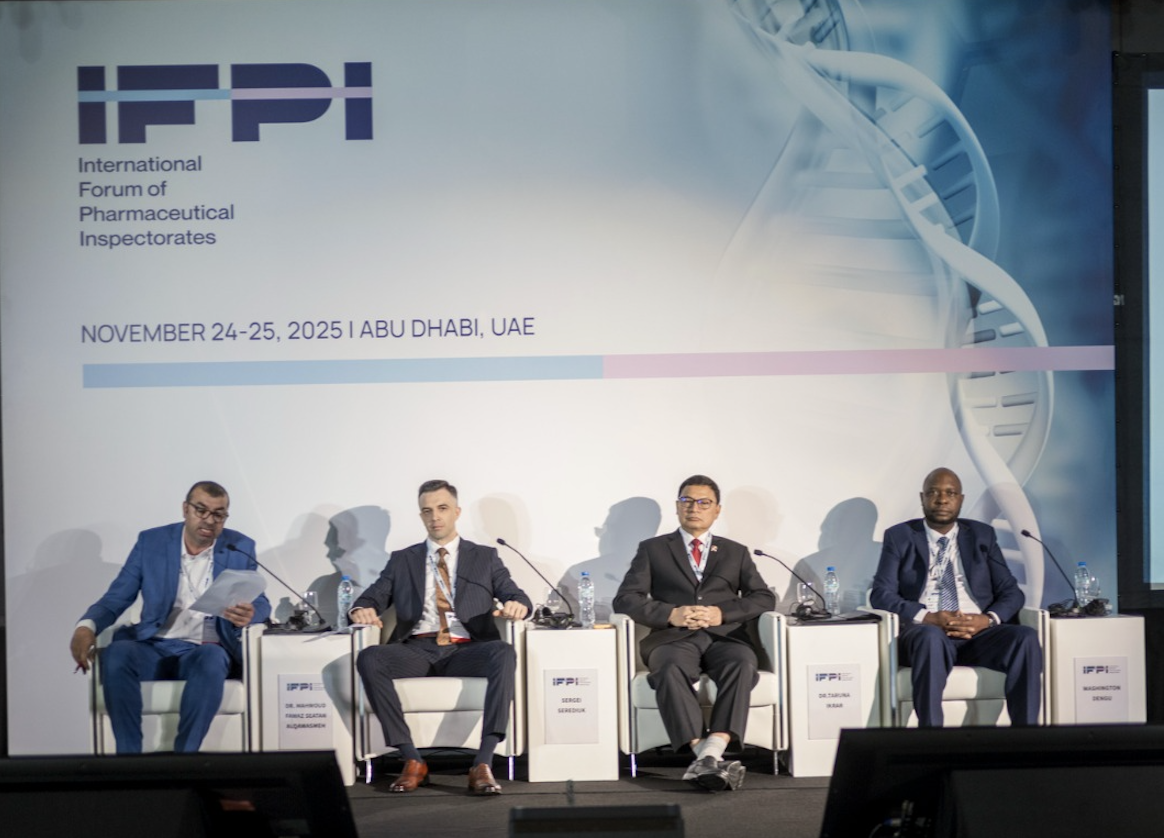Abu Dhabi strengthened its position as a global hub for regulatory dialogue this week, as more than 50 countries convened for the 2nd International Forum of Pharmaceutical Inspectorates (IFPI), held on November 24–25 at the Marriott Hotel Downtown.
The high-level gathering brought together worldwide regulatory authorities, industry leaders, and Good Manufacturing Practice (GMP) experts to advance international alignment on pharmaceutical quality standards and patient safety.
Global supply chains demand shared standards
With medicines increasingly developed, manufactured, packaged and prescribed across multiple countries, speakers emphasised the need for deeper regulatory cooperation to ensure consistent safety and quality.
“Cooperation between regulatory authorities increases the availability of high-quality, safe, and effective medicines while improving transparency,” said Vladislav Shestakov, Co-Chair of the Organising Committee and Director of the State Institute of Drugs and Good Practices. He underscored that “quality begins with the mindset of its creators.”
For the second year, the Russian Federation co-chaired the Forum, with participation from the UAE, France, India, Singapore, the US, the UK, Egypt, Turkey, Armenia, Jordan, Italy, Belgium, and representatives from African states under the AMRH initiative.
Focus: harmonisation, inspection trust, and access to modern medicines
This year’s programme examined the most pressing challenges facing global regulators, including:
- Harmonisation of pharmaceutical manufacturing requirements
- Expanding access to modern medicines across different healthcare systems
- Regulatory reliability, trust, and mutual recognition of GMP inspections
- Inspection frameworks for biological medicinal products
- Improved data-sharing and transparency among global inspectorates
Delegates also covered industry shifts driven by gene therapies, advanced biologics, and AI-enabled manufacturing.
“A new regulatory architecture is emerging”
Dmitry Galkin, Director of the Department for the Development of the Pharmaceutical and Medical Industry at Russia’s Ministry of Industry and Trade and Head of the Russian GMP Inspectorate, highlighted the rapid evolution of the regulatory landscape.
“A new architecture of global pharmaceutical regulation is taking shape, where mutual recognition of inspections, data exchange, and comparable quality standards become key elements,” he said.
Hands-on workshops strengthen technical competencies
Beyond high-level panels, inspectors and technical experts participated in workshops and case-based sessions designed to enhance GMP inspection skills, strengthen regulatory capacity, and foster practical problem-solving.
The event reaffirmed Abu Dhabi’s growing role as a neutral platform for global regulatory collaboration, reinforcing shared ambitions to modernise oversight models and ensure safe access to medicines worldwide.
International regulators call for deeper cooperation
Several leaders used the Forum to stress the importance of cross-border collaboration.
Prof. Dr. Taruna Ikrar, Head of the Indonesian FDA (BPOM), said the IFPI provides “a platform that strengthens regulatory systems and elevates the quality, consistency, and integrity of GMP inspections worldwide,” adding that ASEAN remains committed to harmonised standards and science-based inspections.
Looking ahead
As the Forum concluded, delegates pointed to one recurring takeaway: progress in the pharmaceutical sector depends on people, inspectors, regulators, scientists, and innovators working collectively toward a safer global medicine ecosystem.
Organisers confirmed that plans are already underway for an expanded next edition of the IFPI.

